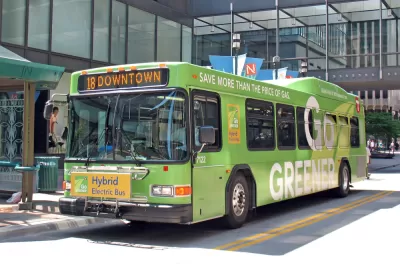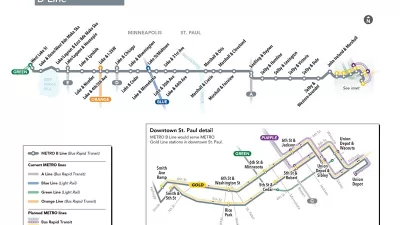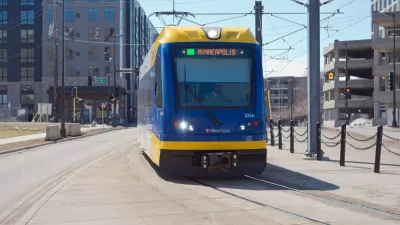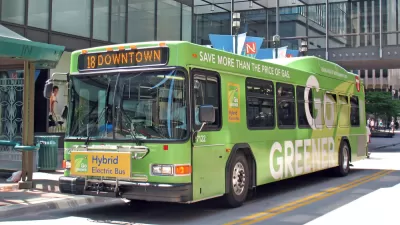The Twin Cities found the secret to bus service success, but it was never really a secret.

"The reviews are in for the Twin Cities’ first enhanced bus route — the A Line — and riders want more," according to an article by Angie Schmitt.
"Metro Transit calls the service arterial Bus Rapid Transit, or 'aBRT,' but the A Line has no dedicated right of way as it runs along Snelling Avenue," explains Schmitt. "Instead, the A Line has features that should be common on most bus routes."
That last point is the key to A Line's success in the Twin Cities. The kinds of service improvements Schmitt lists aren't innovations, invented by Elon Musk or someone at Sidewalk Labs. These are service improvements in place already all over the world, either in part or in total, that are proven to increase transit ridership. Whether transit is a real world priority or just a priority in press releases all depends on political leadership from politicians and planners.
The A Line has increased ridership by 30 percent since improvements were completed in 2016. That resounding success is clearing the way for more upgrades to other routes in the system. Schmitt provides more information:
Governor Mark Dayton has proposed $50 million in bonding for similar improvements to other bus routes. And the Pioneer Press gave this approach a resounding endorsement, saying the A Line is a good value that can be replicated quickly and help the region meet the needs of its growing population.
FULL STORY: Minneapolis Figured Out the Formula for Increasing Bus Ridership

Planetizen Federal Action Tracker
A weekly monitor of how Trump’s orders and actions are impacting planners and planning in America.

Map: Where Senate Republicans Want to Sell Your Public Lands
For public land advocates, the Senate Republicans’ proposal to sell millions of acres of public land in the West is “the biggest fight of their careers.”

Restaurant Patios Were a Pandemic Win — Why Were They so Hard to Keep?
Social distancing requirements and changes in travel patterns prompted cities to pilot new uses for street and sidewalk space. Then it got complicated.

California Homeless Arrests, Citations Spike After Ruling
An investigation reveals that anti-homeless actions increased up to 500% after Grants Pass v. Johnson — even in cities claiming no policy change.

Albuquerque Route 66 Motels Become Affordable Housing
A $4 million city fund is incentivizing developers to breathe new life into derelict midcentury motels.

DC Area County Eliminates Bus Fares
Montgomery County joins a growing trend of making transit free.
Urban Design for Planners 1: Software Tools
This six-course series explores essential urban design concepts using open source software and equips planners with the tools they need to participate fully in the urban design process.
Planning for Universal Design
Learn the tools for implementing Universal Design in planning regulations.
Heyer Gruel & Associates PA
JM Goldson LLC
Custer County Colorado
City of Camden Redevelopment Agency
City of Astoria
Transportation Research & Education Center (TREC) at Portland State University
Camden Redevelopment Agency
City of Claremont
Municipality of Princeton (NJ)





























